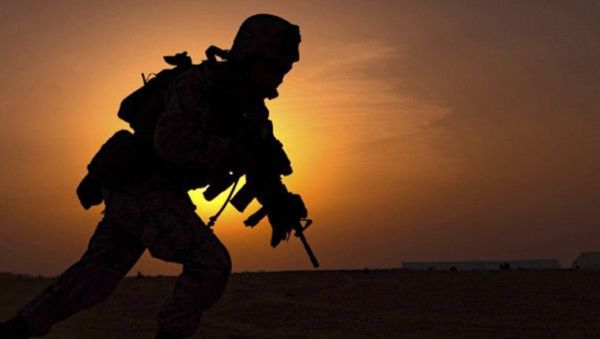
Military and foreign policy professionals often warn against the “politicization of the military.” Yet the phrase has become so reflexive and vague that it obscures the reality: the U.S. military is already an intensely political institution.
In answering Lt. Col. Stuart Scheller’s question—How can the military build a screening system to assess the performance of key leaders?—the answer requires something bold and often unpopular: politicians must assert more influence over military affairs.
They should evaluate military leadership for three key reasons: to uphold the morality of war, to ensure trust in institutional decision-making, and to enforce accountability when performance falters.
Moral Responsibility Is Political Responsibility
In wartime, civilian leaders are not merely strategists or managers but moral actors. Delegating war-making authority does not absolve them of ethical accountability. Even decisions operational in appearance—targeting, casualty thresholds, or force posture—carry profound political and moral weight.
Winston Churchill offers a clear example. In preparation for Operation Overlord, the Allied invasion of Nazi-occupied France, Churchill demanded that bombing plans limit civilian casualties to under 10,000. When Air Marshal Arthur Tedder forecast 160,000 potential civilian deaths, Churchill objected: “You are piling up an awful load of hatred.” That wasn’t simply an emotional response but a political judgment. Churchill understood that high civilian deaths could damage Britain’s postwar legitimacy and moral authority.
Churchill regularly took responsibility for decisions that blurred the lines between tactics and grand strategy. He considered deploying metal chaff to jam German radar but recognized that the Luftwaffe might adopt the tactic in return, threatening British civilians. The technical details were military in nature, but the consequences were political and human. He assumed the burden, knowing the final accountability lay with elected leadership.
Trust Between Civilians and the Military Is Built on Moral Clarity
In Western democracies, trust between civilian leaders and the military is foundational—and reciprocal. Political leaders trust the military to execute orders professionally and within the law. In turn, the military trusts that political decisions have moral and democratic legitimacy. That trust collapses if civilian leaders defer too much to generals or if generals act as the final arbiters of war strategy.
Again, Churchill provides a model. He personally approved withholding some Ultra intelligence—intercepted Nazi communications—to protect British codebreaking capabilities, even though this meant allowing some Allied convoys to sail into known danger. A purely tactical view might suggest this was a military decision. Churchill, however, knew that if something went wrong, the blame would fall on commanders unless a civilian leader took responsibility. So he did. Trust between political and military leadership was preserved because the moral chain of accountability remained intact.
Political Rhetoric Is Often a Tool for Strategy
Political statements in wartime deserve nuanced analysis, especially when they appear misguided or offhand. Analysts and military leaders often err by taking such statements at face value. Eliot Cohen, for example, critiques Churchill’s fixation on invading Norway in his book Churchill and His Generals, suggesting it showed poor strategic sense. He echoes the views of generals who believed Churchill’s public obsession with Norway reflected strategic incoherence.
But Churchill’s focus on Norway likely served a deeper strategic aim: deception. British intelligence actively ran misinformation campaigns suggesting that Norway was a major target. False plans, fake radio traffic, and misleading deployments were designed to divert German forces. Churchill’s public posture reinforced this ruse. Delegating this entirely to the military could have undermined the effort. By owning the deception at the political level, Churchill protected operational security and trust among commanders.
Cohen’s mistake is in separating military objectives from political strategy. In democratic war-making, the two are inseparable.
The Accountability Gap in Today’s Military Leadership
Churchill and his contemporaries evaluated and, when necessary, removed military leaders with far greater frequency than today’s political leadership does. During World War II, U.S. and British generals were dismissed for underperformance. In contrast, modern military leaders rarely face consequences, even in the wake of strategic failures like Iraq, Afghanistan, or the 2020 Abbey Gate bombing.
The modern U.S. military lacks robust systems for evaluating general officers. Promotions and assignments at the highest levels rely heavily on internal endorsements—what some call the “old boys’ club.” The result is an accountability vacuum. Without objective metrics or external scrutiny, failures are quietly passed over, and performance is difficult to measure.
It is time for politicians to change this dynamic. Civilian leadership should scrutinize generals as they do Cabinet members or agency heads. Just as Secret Service Director Kimberly Cheatle resigned after a bipartisan loss of confidence, generals should be held accountable when public trust is lost.
The pressure must extend to senior officers who recommend underperforming subordinates. If a general’s advancement damages public trust, those who vouched for them should also be scrutinized. This would incentivize commanders to develop a genuine performance culture—not one based solely on reputation or political safety.
Congress and the Media Must Reassert Oversight
Congressional oversight of the military has been inconsistent and often toothless. Hearings on Benghazi, Syria, and Afghanistan withdrawals have yielded few consequences. Testimony usually includes bureaucratic evasions—“We were waiting for guidance” or “Our hands were tied.” These are not explanations; they are excuses that avoid acknowledging bad calls or poor leadership.
Congress needs to elevate its role by pushing for external performance audits, clear criteria for command fitness, and whistleblower protections. The media, too, should be willing to investigate and expose leadership failures—not just battlefield heroics or cultural controversies.
Civilian leaders ought to invest in developing new generations of political-military advisors capable of bridging the knowledge gap. It’s not enough to say, “Let the generals decide.” Politicians need the confidence and understanding to ask hard questions and make final calls that reflect the will and welfare of the people.
Civilian Oversight Is Not Micromanagement
Some argue that more political involvement risks micromanagement or undermining operational flexibility. That danger exists—but so does the greater danger of unchecked military autonomy. Civilian oversight doesn’t mean interfering in tactical decisions. It means guiding strategic direction, setting ethical boundaries, and evaluating outcomes. It’s about asserting that in a democracy, warfighting ultimately serves political goals—not the preferences of the Pentagon.
The chaotic withdrawal from Afghanistan is a case in point. Military leadership failed to speak hard truths to policymakers, and civilian leaders ignored their advice. Either way, accountability was blurred. That outcome wasn’t just a planning failure. It was a breakdown in the civil-military relationship. Rebalancing that relationship is essential to preventing future fiascos.
The Moral Imperative of Oversight
The military is a tool of national power—yet not an independent one. Civilian leaders must guide it with moral clarity, strategic insight, and public accountability. That requires reasserting political authority, not retreating from it. Politicians need to evaluate generals the way they would any senior official—by their integrity, performance, and alignment with national values.
When done responsibly, re-politicizing the military is not a threat to democracy. It is the very mechanism by which democracies control force, maintain trust, and uphold moral legitimacy in war.
S.L. Nelson has served from the tactical to strategic level as a military officer. His views are his own and do not represent the position of the U.S. DoD.
This article was originally published by RealClearDefense and made available via RealClearWire.







